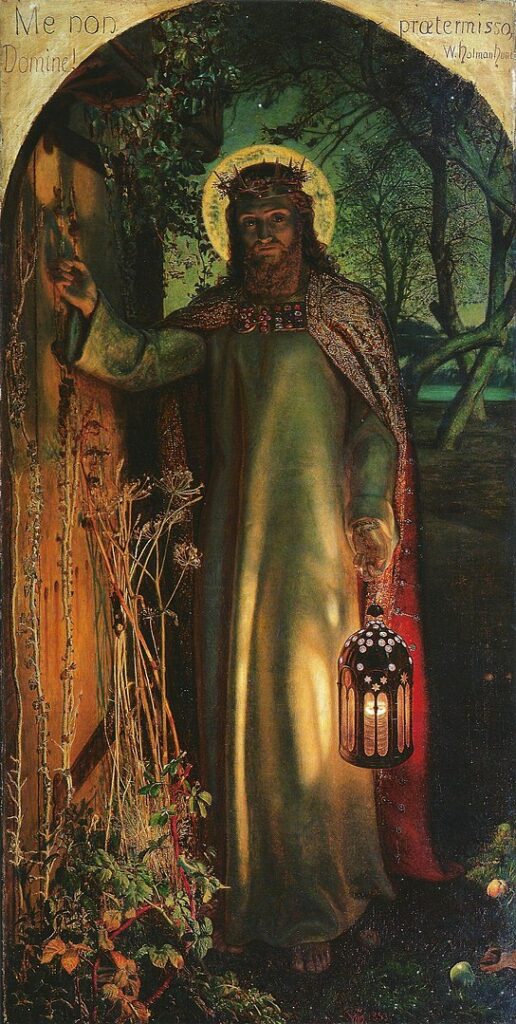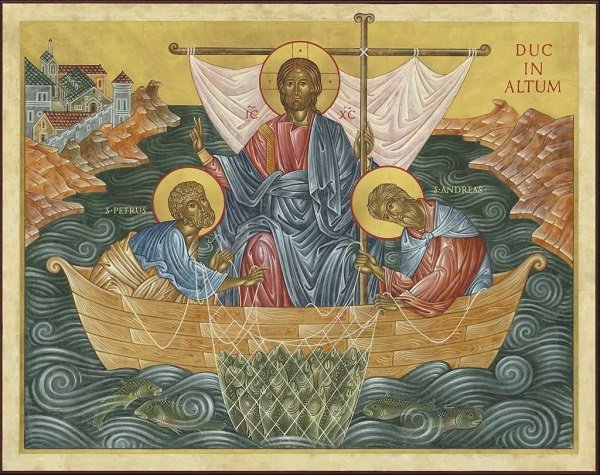One of the most striking and challenging statements made by Jesus in the New Testament is found in Matthew 10:34-36, where He declares,
Do not think that I have come to bring peace to the earth; I have not come to bring peace, but a sword. For I have come to set a man against his father, and a daughter against her mother, and a daughter-in-law against her mother-in-law. And a person’s enemies will be those of his own household.
This passage seems shocking on the surface, especially when considering the overall message of love and unity that permeates Jesus’ teachings. However, the context and deeper meaning reveal a powerful truth about the nature of the Gospel and its effects on both individuals and society.
To fully grasp the weight of this passage, we must first look at its roots in the Old Testament, specifically the book of Micah. In Micah 7:6, the prophet laments the moral decay of Israel, stating, “For the son treats the father with contempt, the daughter rises up against her mother, the daughter-in-law against her mother-in-law; a man’s enemies are the men of his own house.” This verse vividly describes the breakdown of family relationships due to wickedness and rebellion against God’s law. Jesus’ words in Matthew 10 intentionally echo this sentiment, drawing a direct line from the Old Testament warnings about unfaithfulness to the New Testament reality of how the Gospel would confront the sinful state of the world.
The Context of Micah
In Micah, the prophet was addressing the societal collapse of Israel, where even the most intimate bonds of family were being destroyed by sin and disobedience. Micah paints a picture of a people so consumed by selfishness and injustice that they no longer respect even their closest relatives. The prophet sees this as symptomatic of a broader rejection of God’s covenant and moral law. The division within households is not just a social issue but a spiritual one. It highlights how far the people have fallen from the righteousness that God demands.
This imagery of family conflict becomes a powerful metaphor for the broader consequences of rebellion against God. Micah’s prophecy warns that, when sin takes hold of a society, even the most sacred relationships will not be spared from its destructive influence.
Jesus and the Sword of Division
When Jesus references Micah’s words, He is not introducing a new concept but rather showing that the arrival of the Kingdom of God would bring about the same kind of division that Micah described. Jesus knew that the proclamation of the Gospel—the announcement of the reign of God and the call to repentance—would be met with resistance. The “sword” that Jesus speaks of is not a literal weapon of violence but a metaphor for the divisive nature of truth. The Gospel, by its very nature, demands a choice. And this choice—whether to accept or reject Jesus—would inevitably cause division, even among family members.
Jesus’ mission was to bring ultimate peace, but not a superficial peace based on compromise or the avoidance of conflict. The peace of Christ is founded on truth and righteousness, and this peace is incompatible with sin and falsehood. As St. Hilary of Poitiers comments, the “sword” in this context symbolizes the Word of God, which cuts through the lies and deceptions of the world.1 It confronts individuals with the stark reality of their need for repentance and transformation. This, in turn, leads to opposition from those who are not ready or willing to accept the truth.
The Internal Struggle with Truth
St. Hilary’s mystical interpretation of this passage adds another layer to our understanding. He sees the “five in one house” as representing the different parts of a person: the body, the soul, and the will. These internal faculties, once corrupted by sin, are often at odds with one another. The body and its desires may pull a person in one direction, while the soul longs for something higher. The will, caught in the middle, must decide which path to follow. In this sense, the division that Jesus speaks of is not just external but internal as well. The truth of the Gospel causes a person to confront their own inner conflicts, forcing them to choose between the old self, corrupted by sin, and the new self, redeemed by grace.
This internal struggle mirrors the larger spiritual battle that takes place in the world. As St. Augustine notes, the division that Jesus brings is not only within families but also between the people of God and the “city of the world,” or the sinful society that rejects God’s rule.2 Augustine goes further to suggest that the daughter-in-law against the mother-in-law represents the Church in conflict with the synagogue—the new covenant superseding the old.
The Limited Commission and the Gospel’s Reception
In the immediate context of Matthew 10, Jesus is preparing His disciples for their mission to preach the Gospel to the “lost sheep of the house of Israel” (Matthew 10:6). This chapter is often referred to as the “limited commission” because it deals with the disciples’ first mission, which was confined to the Jewish people. Jesus gives them specific instructions on what to do and what to expect. He warns them that they will face opposition, even from their own families. This is not because they are doing anything wrong but because the message they carry will be divisive by nature.
The division that Jesus speaks of in Matthew 10:34-36 fits within the broader set of warnings that He gives to the disciples. He tells them to expect persecution, rejection, and hostility. In this context, the sword of division is not only a metaphor for internal struggles but also for the external reality of preaching the Gospel in a fallen world. Just as in Micah’s time, those who reject God’s message will often do so violently, even if it means turning against their own family members.
Yet, despite these warnings, Jesus also offers hope. He reassures the disciples that some will receive their message and welcome them. In verses 40-42, He speaks of the rewards that await those who accept the truth and show hospitality to His messengers. This balance between warning and encouragement highlights the reality of the Christian mission: some will reject the Gospel and cause division, but others will embrace it and find new life.
Relativism and the Spirit of the World
The challenges that Jesus describes in Matthew 10 are not confined to the first century. Today, we still see how the truth of the Gospel can divide families, communities, and even nations. One of the great spiritual battles of our time is the conflict between the absolute truth of God’s Word and the relativism of modern culture. Relativism teaches that truth is subjective—that what is right for one person may not be right for another. This mindset is directly opposed to the Gospel, which proclaims that God’s truth is universal and unchanging.
When Christians stand firm in their faith, refusing to compromise with the spirit of the world, they will inevitably face opposition. As Jesus warns, this opposition may come from those closest to them. But just as in the time of the disciples, we are called to remain faithful to the truth, even if it means enduring division and rejection.
Standing Firm in the Truth
The passage in Matthew 10:34-36 offers a sobering reminder of the cost of discipleship. Following Jesus means accepting the truth of the Gospel, even when it causes division. Like the prophets of old, Jesus warns His followers that the truth will not always be welcomed. It will divide families, sever friendships, and set people at odds with one another. Yet, this division is not the result of hatred or malice but of the uncompromising nature of God’s truth.
As we reflect on this passage, we are called to examine our own commitment to the Gospel. Are we willing to stand firm in the truth, even if it means facing opposition from those we love? Are we prepared to endure the sword of division, knowing that the peace of Christ is worth any sacrifice? In a world that increasingly embraces relativism and rejects absolute truth, we must hold fast to the unchanging Word of God, trusting that it will ultimately lead us to the true and lasting peace that only Christ can give.

Footnotes
- Mystically; A sword is the sharpest of all weapons, and thence it is the emblem of the right of authority, the impartiality of justice, the correction of offenders. The word of God, we may remember, is likened to a sword (Eph. 6:17, Heb. 4:12); so here the sword that is sent upon the earth is his preaching poured into the heart of man. The five inhabiting one house, whom he divides three against two, and two against three, we may explain thus: the three are the three parts of man, the body, the soul, and the will; for as the soul is bestowed in the body, so the will has power of using both in any way it chooses; and thence when a law is given it is given to the will. But this is only found in those who were first formed by God. By the sin and unbelief of the first parent, all the generations of men since have had sin for the father of their body, and unbelief for the mother of their soul. And as each man has his will within him, there are thus five in one house. When then we are renewed in the laver of baptism, by virtue of the word we are set apart from our original guilt, and severed, as it were, by the sword of God, from the lusts of this our father and mother, and thus there is great discord made in one house; the new man finding his foes within, he seeks with joy to live in newness of spirit; they which are derived from the old stock, lust to remain in their old pleasures. ↩︎
- (Quæst. in Matt. q. 3.) Otherwise; I am come to set a man against his father; for he renounces the devil, who was his son; the daughter against her mother, that is, the people of God against the city of the world, that is, the wicked society of mankind, which is spoken of in Scripture under the names of Babylon, Egypt, Sodom, and other names. The daughter-in-law against her mother-in-law, that is, the Church against the Synagogue, which according to the flesh, brought forth Christ the spouse of the Church. They are severed by the sword of the Spirit, which is the word of God. And a man’s foes are they of his household, those, that is, with whom he before lived as intimates. ↩︎



